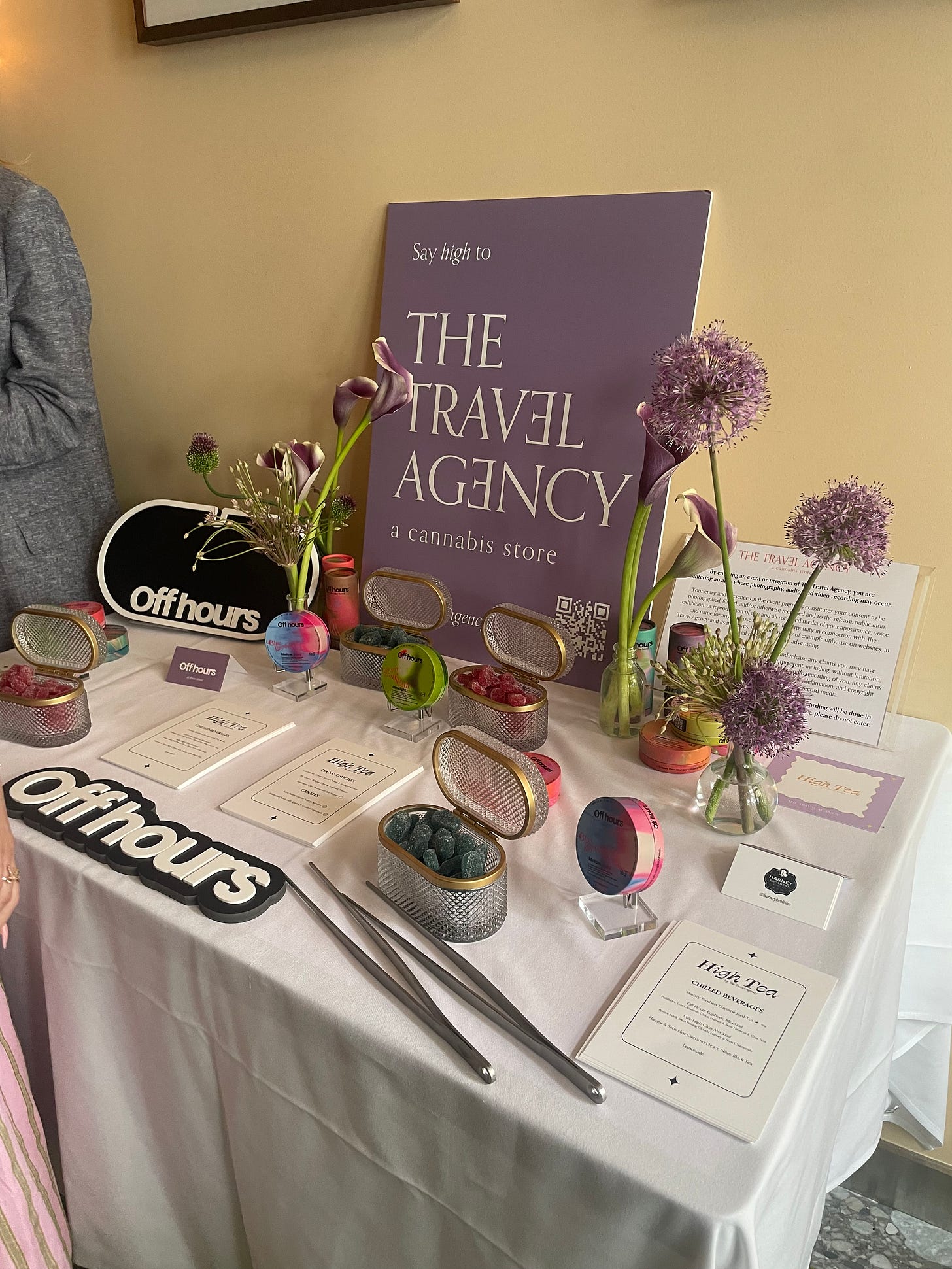A few weeks ago, I was at an event hosted by The Travel Agency, one of the few licensed cannabis dispensaries in the city (more on that below). I got to chatting with another attendee (hi, friend!) who asked me what my favorite health trend or topic has been so far as a ~health and wellness~ writer.
Longtime mixers may remember the days when I shared links to my latest articles on Forbes Health. My coverage ran the gamut from supplements to cannabis to mental health.
But my favorite “trend” of all has been the movement towards holistic health. This approach involves treating patients as a whole person, rather than addressing symptoms individually as has been the Western medicine standard. It’s been really cool to hear from doctors and medical practitioners from around the country promoting this approach that aims towards actual wellness throughout one’s lifetime. This could involve turning to certain lifestyle changes before prescribing pills or trying more natural-based remedies, such as *gasp* cannabis.
An integrative health approach isn’t new—Eastern societies have been doing it for centuries, such as Ayurvedic practices. Nor is this complete “woo woo” science, either; the University of Vermont has a whole program dedicated to integrative health.
I’m not saying that it’s time to shun Western medicine completely. I love my Prozac prescription. Even an Ayurveda practitioner I spoke with once told me that there is obviously a place for modern medicine, especially in emergency situations. We just seem to be at a moment where many people are recognizing that our current health care system is no longer working for us. We utilize it when we’re already sick, rather than having a system that seeks to keep us healthy from the start. Ideally, there is a middle ground we can find between staying where we are and going full MAHA (RFK Jr.’s heavily misinformed Make America Healthy Again movement).
ANYWAYS, all that to say that I’ve learned quite a lot from health reporting and I’m excited to keep learning. It’s been a while since I’ve had new articles to share, but I’m still staying on top of the latest health news, trends, and events. If you’re a health editor or if you know a health editor who needs an SEO writer, let’s get connected!
Below are some interesting brands and topics that I’ve been interested in lately. Enjoy!
Lushi
Lushi is a new company that helps womxn with their fertility journey. I was super lucky to participate in an intimate dinner at the founder’s stunning Tribeca apartment with her fluffy cat (I’m kicking myself for not remembering his name). The four-course dinner was designed for ~fertility~ by celebrity chef Jasper Lynn of Rosalynn Supper Club in L.A. Everything from the deviled eggs to the ocean trout was a hit, but their olive oil mochi cake really… took the cake.
Fun fact: the company gets its name from a type of chicken that lays blue eggs!
The Travel Agency
The Travel Agency, mentioned above, is the only place I can currently find the only edibles that help with my dad’s insomnia. So I was absolutely stoked to get to go to their High Tea at Heroes and Pearl Box, a tiny restaurant and two-story bar set in a SoHo townhouse. I had some weed-infused tea with CBD honey and half a gummy from their Off Hours brand and ended up perfectly high (which ended up being too high to want to go on a previously scheduled walk with a friend—oops!). I wrote about cannabis health benefits and how to safely source weed for Forbes Health here.
Resbiotic
resbiotic is a supplement company that focuses on the gut microbiome and its connection to the rest of the body. Over breakfast at The Butcher’s Daughter restaurant in Manhattan, I spoke with founder and CEO C Vivek Lal, M.D. about his hopes for a more regulated supplement industry.
As it stands right now, almost any company can make a “supplement” and put it on the shelves. Only then does the FDA (Food and Drug Administration) step in, albeit lightly, to see whether these products are safe or effective; this set up does not protect consumers from buying products that are at best useless, and at worst, toxic. New York State even recently issued a Consumer Alert to warn about the lack of FDA supplement regulation.
Dr. Lal hopes that the industry can soon find a middle ground where companies who put the work in to sell safe and tested products are recognized as higher quality than those that don’t.
In my years as a health reporter, I’ve spoken to countless nutrition experts who stress the importance of researching a company’s practices before consuming their products. One major way to check for quality is to find whether a company tests their ingredients and products—and makes the results of these studies, published in a Certificate of Analysis (COA), available to customers.
Relatedly, SuppCo. is a new player in the supplement space that is building a TrustScore database so consumers can more easily learn whether a supplement company is “legit” or not.
That’s all the wellness I have for y’all today, but stay tuned for much more coverage in a couple of weeks… did someone say beach press trip?? (;
Stay well!




